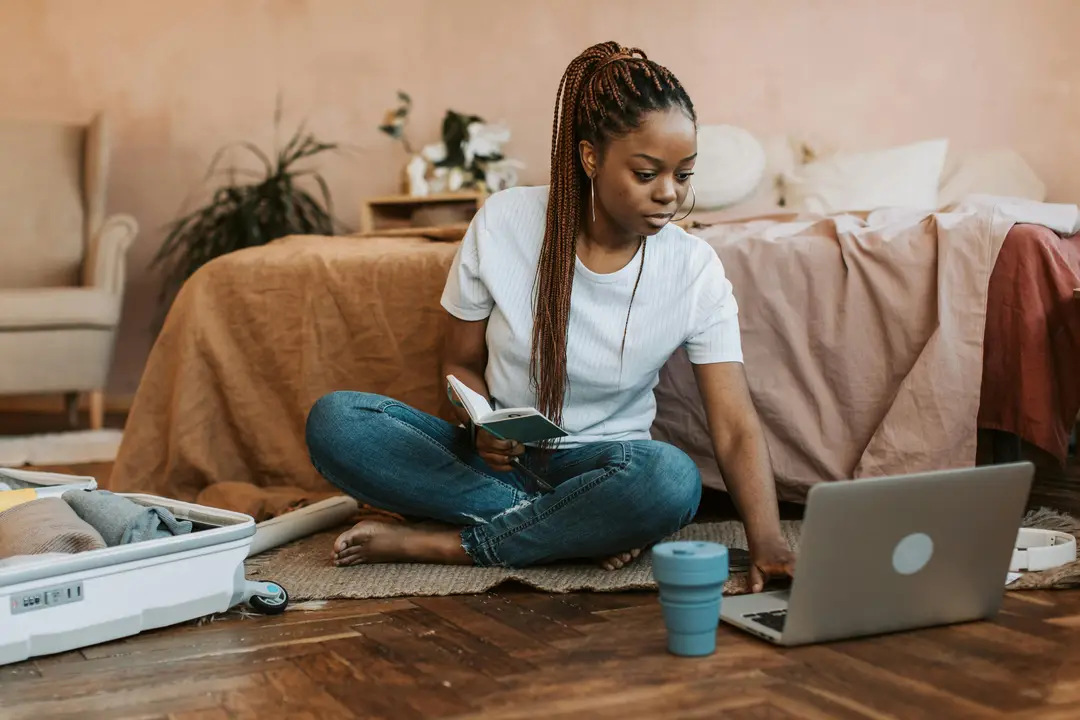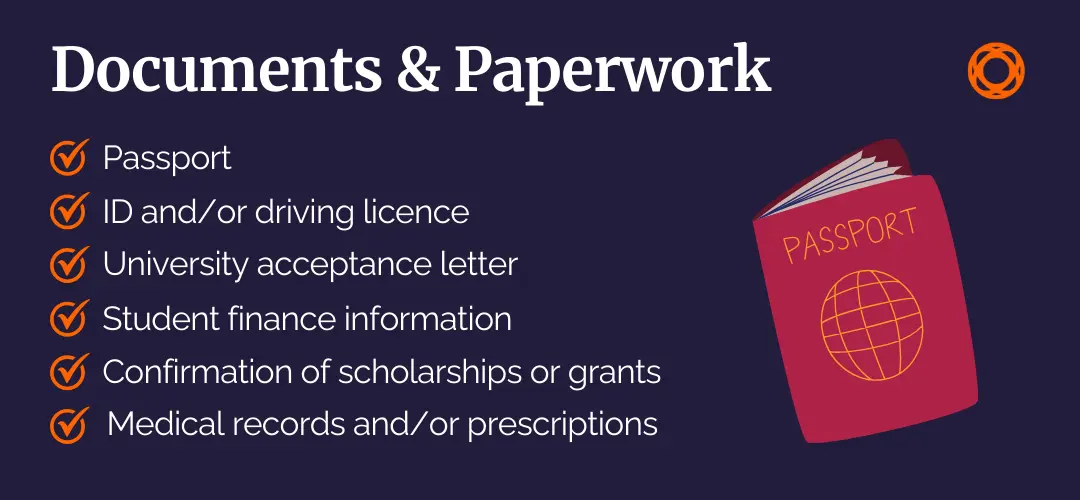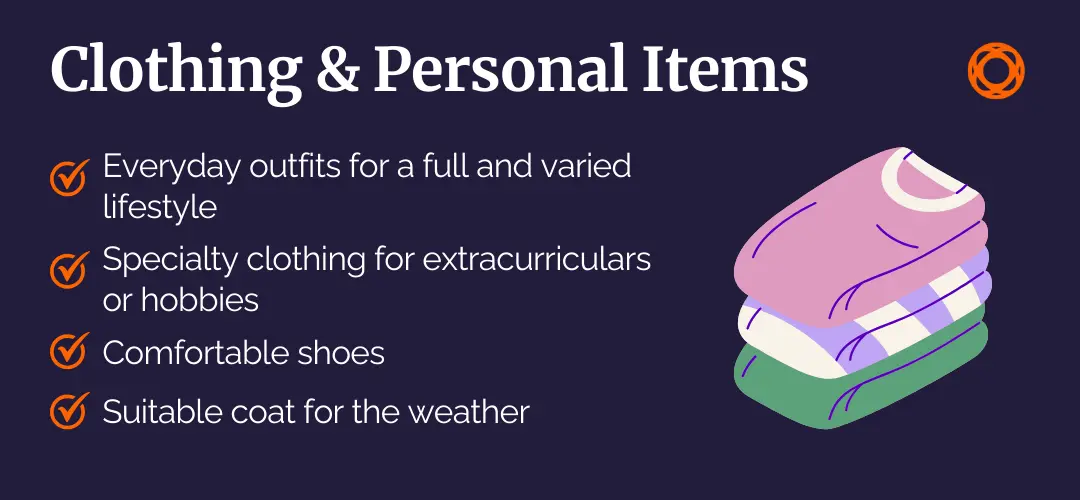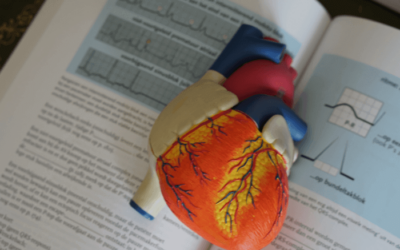What to Pack for University: The Ultimate Guide

So, you’re going to university? Congratulations! You’re about to embark on a huge adventure. For many of us, university is our first time living away from home, often in a new city – for some, even a new country.
While this is one of the most exciting challenges you can take on, it is indeed a challenge. Living away from home, being in charge of your own schedule, taking charge of your learning, and finding your place in entirely new social circles is hard enough, all while remembering to keep yourself healthy and happy.
Luckily, the transition to university can be made easier with some good preparation. In this article, I’ll share all my tips for what to pack for university to ensure a smooth transition. Packing can be stressful, but with this guide you’ll have everything you need to handle the first few months of university life with ease.
Essentials for Your University Packing List
When deciding what to pack for university, it’s good to start with the essentials. What will you definitely need in the first few days? What would be a real nightmare if forgotten?
To keep track of these, I’d recommend using this guide to create a personalised list, so you can tick items off as you pack. If you keep this list safe, you can use it each time you move, as you’ll likely be changing accommodation at least once during your degree.

Documents and paperwork
The first thing to pack is a folder of your essential and important documents. I suggest having a dedicated folder with a list of what’s inside, so you’ll always know where these documents are without having to scramble for them.
Identification documents should go in the folder first, including your passport, ID and driving licence. These will be vital for opening up bank accounts, registering with a local doctor’s surgery, renting accommodation, submitting right-to-work checks if you plan on getting a part-time job, and will likely be required by the university at various points during your course, like when registering for exams.
In this folder, you should also bring printed copies of any documents related to your university offer, such as acceptance letters, confirmation of scholarships or grants, and student finance information. These are especially helpful if you need to set up a local bank account if you’re an international student, or if you’re renting privately.
You should also bring any medical records or prescriptions you have. While these can be transferred across doctors, it’s always good to have a set on hand in case the transfer takes longer than expected, or records get lost – it does happen!
Having my opticians records was a lifesaver for me when I smashed my only pair of glasses in my first week at university, meaning I could re-order the same pair and request temporary contact lenses while I waited.
If you regularly take medication, try and arrange a conversation with your doctor before you leave for university to make sure you’ll be able to access the medication you need. This is especially important if you’re an international student, as the names of prescriptions can vary across countries, as can which medications are provided to treat the same condition.
Finally, double check the customs regulations for the country you’re moving too – you wouldn’t want to have your medications confiscated!

Clothing and personal items
When deciding which clothing items to pack for university, it can be tempting to pack our favourite clothes, or the ones we look the best in. However, while it’s nice to make a good impression, you’re going to be living a full and varied lifestyle, and will need the clothing to match.
Think about what you’ll spend most of your time doing, and pack accordingly. If you’ll be spending the majority of the day at lectures and seminars, prioritise comfortable everyday outfits. Think about the seasons you’ll experience while there: will you be coming back home between terms, and only need to pack for the next few months, or do you need both summer and winter outfits?
Remember you can only wear one set of clothes at a time – one coat is enough, and will save room in your suitcase.
If you’re hoping to continue (or start) hobbies while you’re at university, think about whether these need speciality clothing, from taking your rugby studs to having some old clothes to paint in.
However, remember that there will be opportunities to buy clothes while you’re away at university. If you’re short on packing space, think about the essentials you’ll need for your first month, and then go shopping once you’ve settled in and have a better idea about what you’ll need.

Electronics and gadgets
Electronics and gadgets are going to be essential in completing your university work, and likely for relaxing too. Think about how to pack your laptop and/or tablets so they’re safely cushioned during transport, and make sure you have chargers for everything you take.
I doubled up on both laptop and phone chargers, and always kept one in my bag (one less thing to remember on busy mornings). If you’re an international student, pack a healthy supply of adapters to make sure you can use your devices.
There are lots of gadgets that can help support you while at university. One of the best purchases I made was investing in a pair of good quality noise-cancelling headphones, which meant that I could stay focused, even when working in loud environments.
There are other gadgets too, such as a Dictaphone to record lectures (with your lecturers’ permission), so you can listen to them again when revising, and speech-to-text software for your laptop, which can help get you unstuck when writing difficult essays.
When you’re packing, think about the environment you’re moving to. Sometimes university accommodation will have limited or awkwardly positioned power sockets, so an extension lead can help with setting up charging locations. If you enjoy gaming, think about how you’re going to transport your gaming set-up, and if it’ll fit in your new space. Are there any compromises you can make in the amount of equipment you need?
Finally, consider getting your electronic devices PAT tested before or after you arrive to help keep everyone in your accommodation safe.

Kitchen and dining supplies
For many students, part of the university adventure involves cooking for yourself. You don’t need to go overboard in packing cookware. It’s bulky equipment which you might prefer to purchase on arrival, or even order to your accommodation if you have access to a post room.
If you have a shared kitchen, you could discuss with your housemates if anyone wants to share equipment to save costs and space. A trip to a home goods store with housemates can also be a fun way to get to know each other at the start of term!
As a busy student, having a few easy recipes that you’ve mastered is a great way to keep yourself healthy across term, and saves time planning. Think also about getting some storage containers for leftovers so you can keep nourishing meals on hand.
When packing, think about what you’re going to eat for the first few days while you sort out your kitchen. Dry ingredients like pasta and rice transport well, as do cans, but can get heavy.

Bedroom and living essentials
Sleep is essential for focusing during the day, and consolidating memories at night, storing your learning in your long-term memory so it can be used again in your classes and exams.
To make sure you have the best sleep possible, make sure you plan ahead for comfy bedding. Take some good quality pillowcases, sheets and blankets, and consider getting a mattress topper and new pillows to ensure the best sleep possible. Consider purchasing earplugs, or downloading a white noise app for your phone too, if the accommodation is loud – which it often is!
For most students, your bedroom also serves as both your working and relaxing space. It’s worth spending some time and effort to make the room as welcoming as possible. Think about adding decorations to the wall, using command strips so you don’t damage the paint, such as photos of friends and small mementoes. If you’re an international student especially, think about bringing items that remind you of home, to help smooth the transition into university life.
University accommodation can often be quite bland, so you might want to add blankets or rugs to provide pops of colour. Again, buying these once you’ve arrived at university is probably best, so you can see the space you’re working with first. Table lamps can provide nice lighting, rather than the sometimes harsh ceiling lights, and you can jazz them up even further with coloured bulbs or lampshades.
Specialised packing
Some students will have extra essential items for their passions or degree course, such as sports or art equipment, or musical instruments etc. These can often be bulky, they can’t be bought locally, and can’t be left at home. With these, consider how you’re travelling, and if your equipment can be brought with you: e.g. can your cello be safely shipped if you need to take public transport?
Universities are a community of students, some of whom will have likely faced the same challenges. Consider asking on a Facebook page or an online student forum for advice. It may also be that the university has equipment you can rent, or societies that provide their own kit. Some courses also prefer that students use standard equipment and therefore provide it at the start of the term. This should be clear on the course pages.
What Not to Pack
When you’re packing, think also about what you shouldn’t be packing.
Most universities don’t allow fire hazards, such as candles or electronics that haven’t been PAT tested. As mentioned earlier, some prescriptions are banned in some countries, so if there are any possible infringements in your luggage, double check the border regulations just to be sure.
Finally, think about being a conscientious neighbour. Don’t make loud noises. If you play an instrument, find out where the music practice rooms are and moderate your speaker volume, particularly at night. Your university should have guidelines about quieter hours (usually 10pm-8am), which you should obey. Don’t be like my housemate in first year who liked to practise her opera singing at 2am!
Tips for Efficient Packing
With so many essential items, you’ll need to get strategic about what and how to pack for university.
Start early and prioritise
The earlier you start packing, the longer you have to make the trickier decisions about what not to take, or what to acquire at a later date. Make a list prioritising your frequently used and essential items, and work out what could be left at home.
You’re going to be very busy, especially during your first term, so you might not have time for all of the hobbies you usually do at home. Having a concrete checklist about what to take, and which bags or boxes everything is going in, will make packing much easier.
Pack strategically
One way of cutting down how much you’re going to take is buying items once you get to university, such as kitchenware or bulkier items like rugs and pillows. Similarly, you could take travel-sized versions of toiletries to last you for the first week, and then buy the full-sized versions once you arrive.
For essential items, consider the amount you’re taking. Do you really need ten pairs of socks? Have a look at the available shops near your campus, and think about what you could purchase when you’re there. Have a look online for cost-effective items too, or consider bulk buying.
Packing strategically is a form of 3D Tetris. This means trying to pack your belongings as efficiently as possible. Try folding or rolling your clothes, using packing cubes to sort items by type, or even using vacuum-sealed bags for maximum efficiency.

Staying Organised Throughout the Year
University accommodation, particularly in first year, can often be tight on space. You’ll likely only have one room that needs to serve multiple functions. There are lots of space saving solutions available, such as using the space under the bed for storage, and keeping less frequently used items inside your suitcases. You can generate more storage with pop-up canvas wardrobes, clothes rails and organisers that you can hang over your wardrobe door.
Think about ways in which you can use the vertical or unused space in your room. I used to keep my suitcases, filled with winter clothing, on top of my wardrobe, and ask a taller friend to help me get them down when it got chilly. The space was serving no purpose beforehand, so it was a great way of maximising what little room I had.
Try to keep yourself organised by being strict with clutter, and not letting yourself build up duplicates of clothes and toiletries. A good rule to follow is one-in-one-out – anytime you buy an item of clothing, you commit to donating an older piece of clothing to maintain a fixed number of items in your wardrobe. This principle can be applied to all categories of items.
Keep your space clean by regularly tidying. Even five minutes a day can keep a small space manageably clutter-free, and act as a calming step in your daily routine.
Hopefully you’ve found some of these tips and tricks useful! Packing up and moving to university is a daunting task, but by staying organised with a list, prioritising essential items, and packing strategically, you’ll be surprised at how easily you can set up your new life at university.
Make your packing lists early to make sure you have your essential documents in one place, and reach out to other students to share tips and ask for advice. By planning ahead you can make sure you have everything you need to start term off on a high, and organise your room into a peaceful place for studying and relaxing.
We wish you a stress-free packing experience as you decide what to pack for university!

By Alix Hibble
Alix has a PhD in Experimental Psychology from the University of Oxford, where she currently works as a lecturer in Study Skills. She loves exploring Oxford while listening to science and comedy podcasts, experimenting in the kitchen, and hosting murder mystery parties for friends.
Discover Oxford by applying to a summer school today!
Recommended articles
Best Universities to Study Medicine in the World
A degree in Medicine spans many years, so it’s important to make a good choice when committing yourself to your studies. This guide is designed to help you figure out where you'd like to study and practise medicine. For those interested in getting a head start, the...
What Is A Year Abroad?
One of the great opportunities offered to UK university students is taking a year abroad. But what does this involve? Who can do it? What are some of the pros and cons? In our year abroad guide, we’ll explain some of the things to bear in mind when considering this...
The Ultimate Guide To Summer Internships
Are you eager to make the most of your summer break and jumpstart your career? There are so many productive things students can do in the summer or with their school holidays, and an internship is one of the most valuable! A summer internship could be the perfect...


